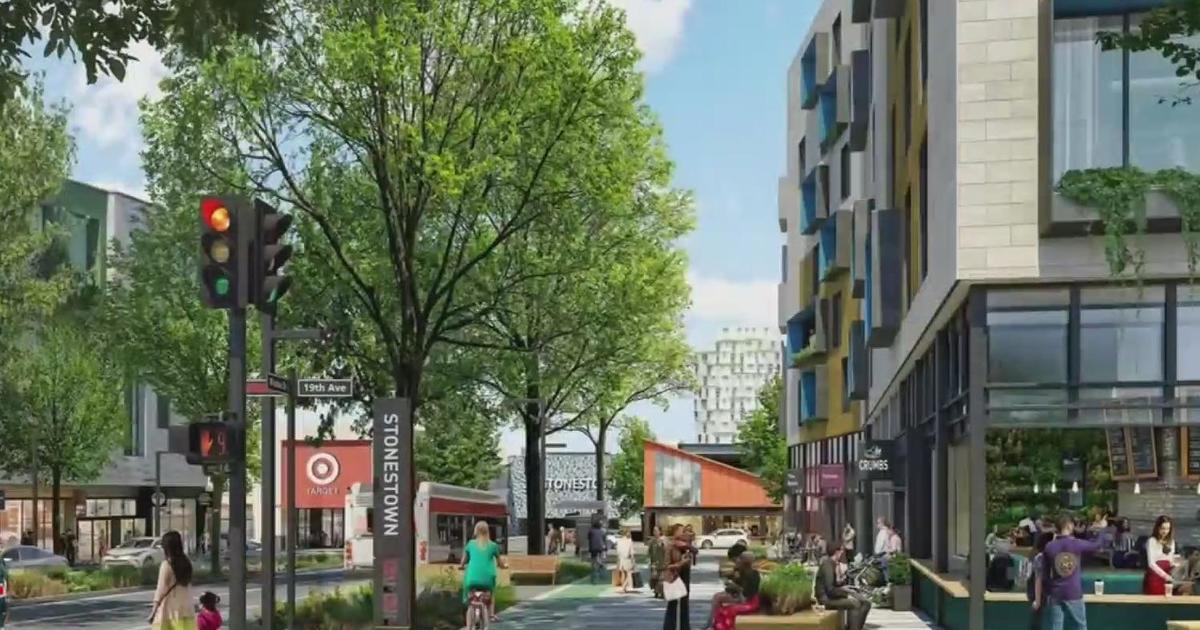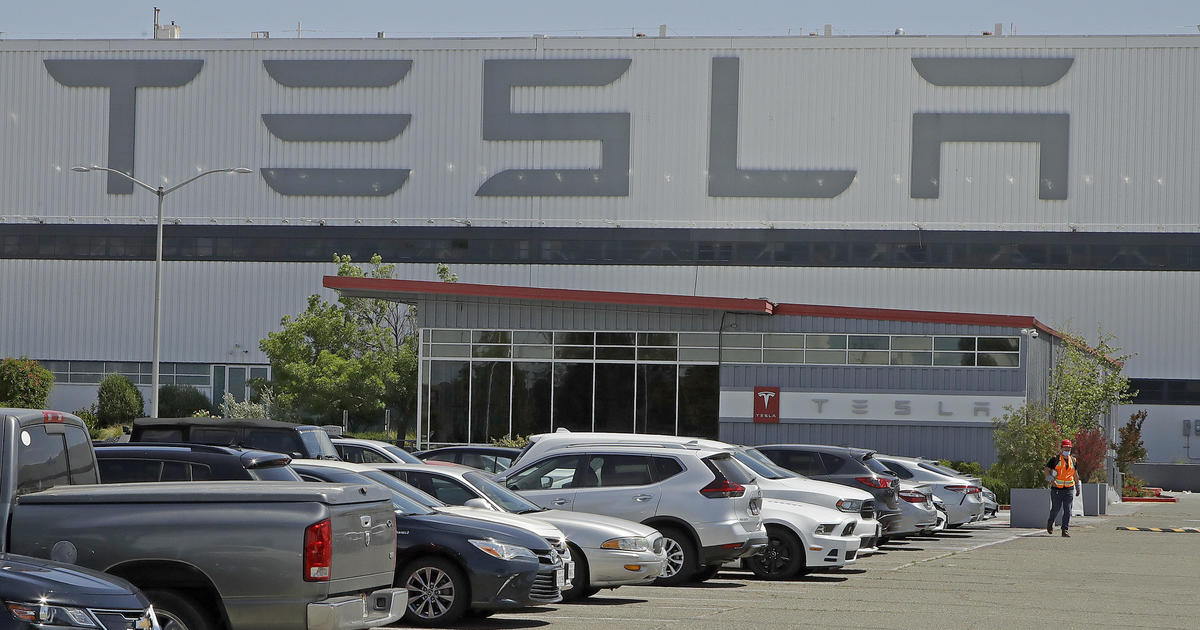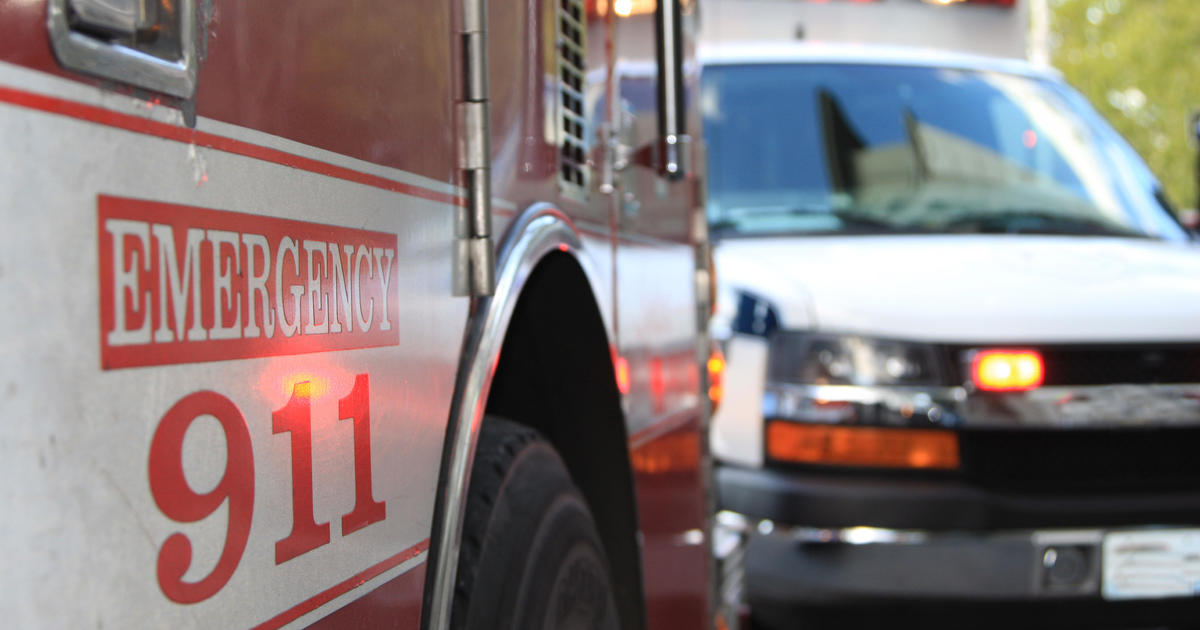Southbay Homeless Shelters, Food Banks Adapt To Surge In Demand Since COVID-19 Outbreak
SANTA CLARA (CBS SF) - Cleaning crews start and end the day sanitizing the bathrooms in the Sunnyvale HomeFirst homeless shelter as the possibility of a coronavirus outbreak could happen at any moment.
"It's nuts right now," Andrea Urton, CEO of HomeFirst, a homeless service and shelter provider in Santa Clara County, said Monday. "We're sleeping people head to toe and 6 feet apart from each other."
Urton said HomeFirst shelters throughout the county have taken measures to reduce capacity and rearrange residents to be socially distanced, as well as ramped up cleaning services and protocols.
The county has also activated San Jose's Parkside Hall and South Hall shelters to accommodate additional residents. Parkside Hall can take 75 people and South Hall currently can hold 100, with a total of 283 coming online soon, Urton said.
Homeless residents who enter the shelter are directed to county medical staff if needed, but by referral only. HomeFirst has shut down walk-ins to shelters.
And as far as Urton knows, there has been at least one resident and at least five staff members out of roughly 230 total throughout her network that have tested positive with the virus, including two staffers at the Gilroy National Guard Armory shelter, two at the Sobrato Family Living Center in Santa Clara and one at the San Jose Bridge Community Housing location.
While Urton oversees all of HomeFirst's shelters, she said the county handles testing information and does not share locations of homeless residents tested because it would be a violation of medical privacy laws.
"It makes me nervous and I lose sleep over it because I don't know if we have a bigger problem than we do," Urton said. "They're not doing anything wrong. They're actually abiding by the law, it's protected health information. So I think this is an example, not of the county trying to hide something from us, but a reflection of the current laws not working in a pandemic situation."
She added that the future remains "uncertain," but that she is proud of the work her team is doing. She also mentioned that HomeFirst is hiring part-time workers to help manage area shelters, as many are short-staffed.
The county's Emergency Operations Team did not immediately return a request for comment Monday.
Jerome Shaw, a resident of the Sunnyvale shelter, is part of a deep cleaning enclave inside the shelter and also helps in the kitchens distributing plates during meal times everyday.
"We try to keep as clean and sanitary as possible," Shaw, 44, said Monday.
Gloves are worn by volunteers and donated handmade masks were distributed to the whole shelter after they ran out last month, he said. And residents' temperatures are taken at the door anytime someone leaves and comes back. But the fear of infection still looms.
Gov. Gavin Newsom announced in Campbell on Saturday that the state secured over 16,000 hotel rooms for homeless individuals throughout California. San Jose Mayor Sam Liccardo said at Newsom's announcement that Santa Clara County had housed over 500 homeless individuals in hotel rooms.
But residents cannot simply just opt into a hotel stay, as it is reserved for need-based cases determined by county health care workers.
Though if offered the chance to move into a hotel today, Shaw said he'd take it.
"It's impossible to do social distancing in the shelter," Shaw added. "I still don't understand why the county, until Governor Newsom enacted it, hadn't acquired more motels and hotels knowing that the large density we have in the shelter is susceptible to spreading the virus more quickly."
But for now, Shaw remains in the Sunnyvale shelter, trying to maintain sanitary conditions and survive the outbreak day by day.
"All we do is like sit on our beds all day. Obviously it takes its toll on your mental health too," Shaw said, also adding that there are no resources he knows of to get tested for COVID-19 infection if he wanted to. "The longer the situation goes on, hopefully it gets better. I don't know why the resources aren't there."
Meanwhile, as low-income families and homeless residents access food banks throughout the South Bay, demand is surging for food.
"Of course we are really stretched right now because we have never seen this kind of dramatic increase in demand," Second Harvest of Silicon Valley CEO Leslie Bacho said Monday. "Right now, we're reaching out to all of our food suppliers and bringing out as much as we can."
Bacho said her organization's food banks served about 38,000 households between Santa Clara and San Mateo counties last week.
She added that her teams are seeing a roughly 40 percent increase in demand now compared to weeks before the first shelter-in-place orders hit in March. And they are on track for a 50 percent greater need from residents as the COVID-19 crisis continues, Bacho said.
"We also want to be honest -- it's a challenging time. Just like when you go to the grocery store, it's challenging," Bacho said. "We want to ideally do more because we know the need is out there."
Second Harvest has been lucky to have an abundant stock of fresh produce, she said, and some food boxes are equipped with things like apples, oranges, tomatoes and celery, while other boxes come with milk, eggs and canned goods.
"We are doing our best to predict what the demand's going to look like, but things have changed so dramatically that it's just hard to expect," Bacho said. "Really, we need people's financial support because everything we're doing right now is just so expensive and we're seeing such higher volume."



